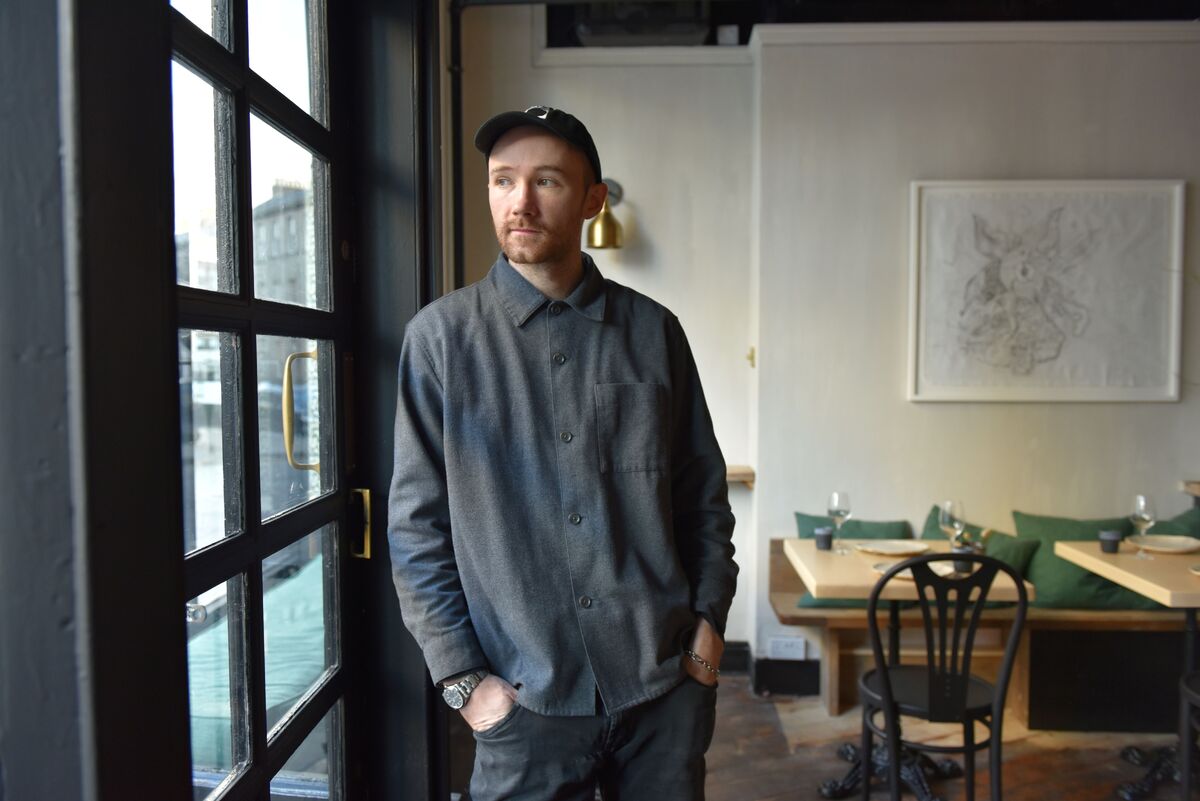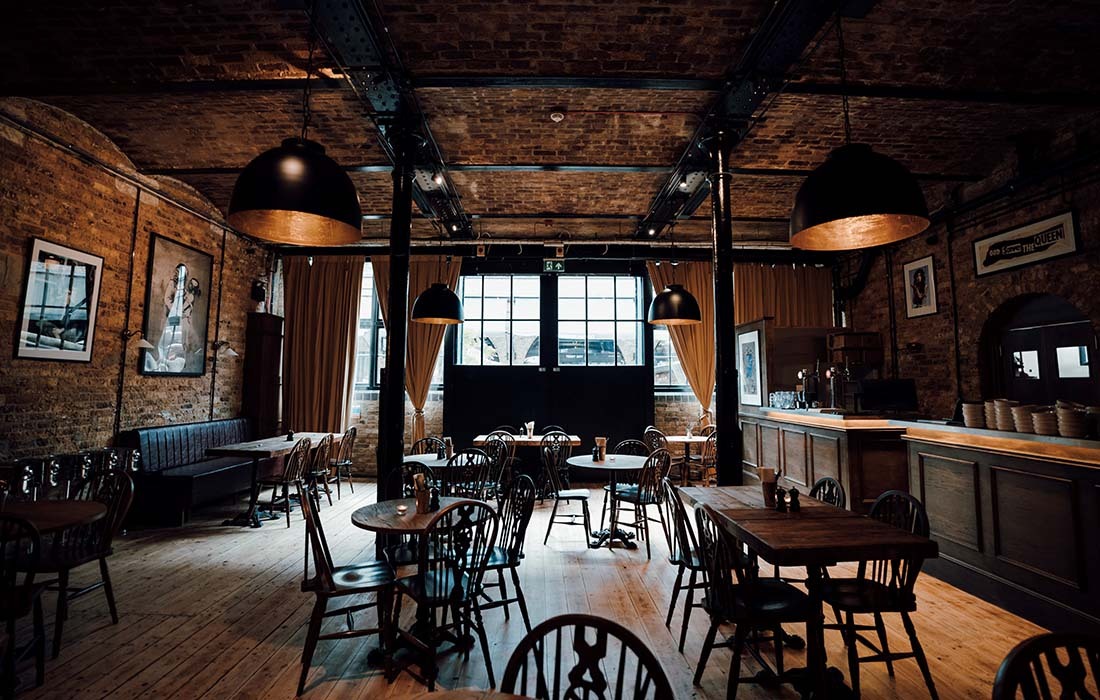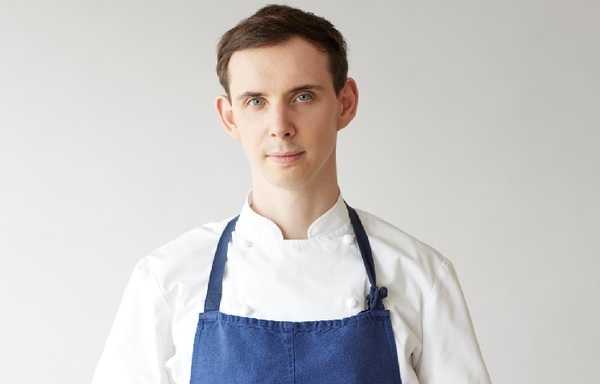Simon Hulstone's final countdown to Bocuse d'Or 2011
Next Wednesday, Simon Hulstone will represent the UK at the most high-profile competition of his career, the Bocuse d'Or 2011, in Lyon. He tells Amanda Afiya how he is preparing for the mother of all cook-offs
It's one of the most highly regarded culinary competitions in the world - and certainly one of the most hotly contested - the Bocuse d'Or, which takes place next week in Lyon, will see 24 international chefs compete for the 2011 title under extreme "salon" conditions.
Created by legendary French chef Paul Bocuse in 1987, the competition requires the competing chefs and their respective teams of one chosen commis chef and one supplied commis to serve two silver platters based around seafood and lamb to an international panel featuring some of the world's finest chefs.
Although the judges are yet to be unveiled, it's not unusual for the panel to include the likes of three-Michelin-starred chefs such as Thomas Keller and Daniel Boulud who will scrutinise the competitors' entries, while competitors perform in front - and to the constant noise - of thousands of supporters from the visiting nations, banging drums, blowing whistles and horns, screaming and shouting relentlessly for eight hours across two days. Think South African World Cup and the constant hum of the vuvuzelas.
And if that's not enough pressure, the UK's largest industry show for 2011, Hospitality at Birmingham's NEC, will also be live-streaming the event into its exhibition halls for its visitors' gratification. In the immortal words of Masterchef‘s Gregg Wallace, cooking doesn't get any tougher than this.
But if anyone can sustain the pressure and demands of the exhibition halls of SIRHA (Salon International de la Restauration, de l'Hotellerie et de l'Alimentation) in Lyon, which hosts the Bocuse d'Or next Tuesday and Wednesday, it's Team UK's representative Simon Hulstone.
The head chef of the Michelin-starred Elephant restaurant in Torquay was the first British chef to win a gold medal at the WorldSkills, in Lyon in 1995, at the tender age of 20. He went on to secure the country's most sought-after, competition-based accolades - including the Roux Scholarship in 2003 and National Chef of the Year in 2008 - while also competing for the English National Culinary Team. The holder of 40 gold medals, Hulstone is as well-known on the competition circuit as Frankie Boyle is on the comedy one.
So it was no surprise when he was asked to compete in the 2009 Bocuse d'Or, albeit at relatively short notice. Hulstone finished 10th, scoring the most points ever achieved by a British candidate, but more importantly it gave him the knowledge with which to attack this year's competition.
Together with Team UK commis chef Jordan Bailey, sous chef at the Elephant, and a commis supplied by the competition's organisers, and looked on by team manager Nick Vadis (UK executive chef at Compass Group) Hulstone will work solidly for five-and-a-half hours preparing, cooking and serving to the international judging panel two silver flats, one based on monkfish, crab and langoustine and the other on lamb, each with three garnishes (see Hulstone's menu, below). The teams' two elaborate presentations must serve 14 people. No ingredients may be pre-cut, although teams are allowed to pre-peel garlic, portion oil, salt, flour and other ingredients, and bring stocks made in advance.
One-hundred-and-fifty people will be travelling out from the UK to SIRHA to support the 36-year-old chef, and they in turn join thousands of spectators for the two-day event with 12 chefs competing on the first day, Tuesday, and the remaining 12 chefs - including Hulstone - competing on the Wednesday.
The overall winner of the World Final is presented with the Bocuse d'Or trophy and €20,000 (£16,700) in prize money. However, winning the title brings huge media attention. The first winner of the Bocuse d'Or, Jacky Freon, claims that in the two months that followed the competition, his restaurant's turnover increased by 40%.
So why the fanfare? Well, where Bocuse d'Or perhaps separates itself from many other competitions is the regard in which it is held and the fact that many of the competing chefs feel the need to suspend their jobs in preparation for it. Sponsorship for some competitors is so impressive and runs into so many tens of thousands that they are able to take months off from work - with their commis - to do nothing but prepare and perfect their dishes for the competition.
Hulstone has had no such luxury. While trying to squeeze in six-hour run-throughs - including service and clean down - at every possible opportunity, he has also had to continue to run a busy, seafront restaurant overlooking Torbay. His only respite has been that his restaurant the Elephant, which he runs with his wife Katy and has a fine-dining, Michelin-starred restaurant upstairs and a brasserie on the ground floor, closes upstairs for the winter season each year.
"Last week I was pretty stressed," explains Hulstone. "Other people in the world were doing their final practices and I'm still doing 30 in the restaurant. But after this week [a week of back-to-back run-throughs to chefs including UK judge Brian Turner, Academy of Culinary Arts chairman John Williams, Nathan Outlaw, Tom Kerridge, and 2007 Bocuse d'Or candidate Andre Garrett], we're actually feeling quite good. We've reached a point where we are just refining everything. The food goes on such a journey, from the kitchen to the warm platter, to a warm plate, to the judges, but it needs to be as good as when it left the kitchen."
Where Hulstone is perhaps at an advantage is that this year's key product sponsors are Seafood Scotland and Scotch Lamb, so he has the benefit of working with produce from his own backyard, as such.
In preparation for the competition, Michelle Diederichs of Koyah PR who has looked after the PR for Team UK, arranged for Hulstone to visit Scotland last November so that he could learn a little more about the product with which he'll be working next week.
Like all competitors, Hulstone's dishes will be based on a box of ingredients, with some ingredients more challenging than others. "I was horrified when I saw we had monkfish. It retains so much water, it's not a uniform shape - crucial to the presentation of the Bocuse d'Or - it twists and turns, it's not flaky but fibrous and you have to do a huge amount of prep before you get anything, there's so much wastage."
But being on the English Riviera, presumably he uses it all the time? "No! Last time I used it was in Lyon for the WorldSkills in 1995. Although I serve a reasonable amount of fish in the restaurant, I don't serve monkfish because of the cost and wastage. Bocuse is all about the eye and everything looking identical. Monkfish is not like that, we've tried everything to make it perfectly round, but it just springs into a stupid shape. Any recipe you look at for monkfish, they wrap the bugger up in Parma ham!"
The meat, meanwhile, is a little more user-friendly, says Hulstone. "We've got nice saddles, the shoulder - which is a bit awkward - it's a bit of dry cut and if you cook it in the pressure cooker, it tends to dry out. I've been working with Scotch Lamb and specialist butchers Aubrey Allen on different muscle cuts to get the best out of that part of the animal - I need to get enough individual pieces out for 14 people."
In addition to the saddles and shoulder, the meat box also contains sweetbreads and tongue. "But the use of them is optional," says Hulstone. "I'm not going to use the tongue."
At the semi-finals in Geneva, the Bocuse d'Or Europe, Hulstone finished fourth and won best meat dish with something called a "cheeky bit on the side". It was braised cheeks served in a separate dish with a lid which ensured Hulstone at least served one element of his dish piping hot and he plans to serve both a trawlerman's pie and a shepherd's pie next week. Hulstone can do this because the judging panel is separated into two teams, 12 taste all 24 fish platters and the other 12 taste all 24 meat platters. There will be no danger of one judge getting two pies.
"The hot garnish worked brilliantly in Geneva, but people have seen it now so I'm a bit worried other people will be doing it as well. It's all about making sure I do mine better. But at the semi-finals, the Bocuse d'Or Europe, only 12 countries actually tasted it. There are another 12 judges, from other parts of the world who we can impress. I feel that these particular garnishes are chef dishes - I've tried to make something that everyone wants to eat. I've researched every country and they all have an equivalent. It's comfort food, we all know what it tastes like. Away from the eye candy food of the Bocuse d'Or, I'm giving them something they want to eat."
Team UK is not all about Hulstone. He's supported by his coach, Vadis, and his commis, Bailey. "Nick has been getting everything I need in terms of support and equipment and he's also been looking at my food, step-by-step and commenting on it. He designed all the silverware, presentation, how it goes on the flat, I just give him the dimensions. On the day, to keep the pressure off me, he will stand in front of the kitchen and answer any questions from journalists, judges, etc. He's not allowed in the kitchen and he's not allowed to touch anything, but he can keep me in touch with time." With more than 100 gold medals, Vadis is himself an experienced competition chef.
At just 22, Bailey, Hulstone's commis, is under immense pressure. Despite being 14 years younger than Hulstone, in the competition environment he can work on any aspect of the Team UK entry. "He's allowed to do absolutely everything," says Hulstone. "He is as important as me. We're a team of two. Finding someone 22 and under capable of coping with all that pressure and standing in front of the crowd is not easy. He's been brilliant, he's been a really good choice - and to think that the last few weeks of practice has been our holiday."
The commis provided by the Bocuse d'Or Academy can also do anything, but of course Team UK won't have worked with them before. "Jordan will work very closely with them, he'll show them what to do, for example how to chop the parsley and Jordan will ask them to replicate. They're not stupid - the one we had in Geneva at the semi-finals was brilliant."
President of the Academy of Culinary Arts and UK judge Brian Turner, who has judged the competition since 1989, believes that all has conspired this year to give the UK the best chance it's ever had for a podium finish. "Simon's a dedicated fellow - not that others haven't been - but he understands how it works. We have a bit of funding behind us, he has experience others haven't and I think we now have our best opportunity to get on the podium.
"Simon's USP is, and I hope he can forgive me saying for it, but he's a great competition chef. He's proved himself on the competition front. He understands the psychology of competitions, how to coerce judges into understanding how he thinks. His great coup last time, in 2009, was the cup of beef tea he served afterwards - red hot, tasty.
"He's also very good with his timings - timings are crucial, it's like air traffic control, if you miss your slot you have to go to the back of the queue."
Ever since its inaugural event in 1987, the Academy of Culinary Arts has had the responsibility for choosing the UK entrant. So as much as its attention is on Hulstone to perform this year, it also needs to think about the next candidate - and the one after that. Each competition brings with it new learning.
"I think we've been very lucky this year in that we've met the right people at the right time," says Turner. "One development has been the PR factor - spreading the message. [Indeed Hulstone appeared on BBC2's Saturday Kitchen last weekend as part of the PR campaign.] But John Williams and I, and others, have concentrated on this year's event. We have to concentrate on the role of the candidate - this year it happens to be Simon, but next year it may be someone else. But we'll have Simon's experience. Hopefully we can also introduce a big competition in the UK to find our competitor to go to Bocuse d'Or. I know that I only have to phone an academician to ask for help."
Of course, the support for Bocuse d'Or is crucial. Is this the biggest group of supporters that you've known to travel to Lyon? "It's the biggest aggregate!" laughs Turner. "Over the last couple of years, we have managed to capture the imagination of people. It is developing - every dog has its day. One day, we won't be able to get enough tickets!"
HULSTONE'S BOCUSE D'OR MENU
Loin of Scotlandâs finest lamb with sweetbreads; âspiralâ of shoulder; textures of beetroot; couscous âdominoâ with cucumber ketchup and watermelon; charlotte of asparagus and pea, foie gras bon bon; Madeira jus; shepherdâs pie.
**COMPETITION PRINCIPLES
**Hulstone's key goals for competitions are precision, refinement, interesting, colourful and clean. "I look at competitions as an experience and hopefully by the end I will have 23 more contacts from around the world. You always bump into people again. As long as you go out to compete and win in a gentlemanly way, you'll be respected. We're going out there with expectation, but probably another eight countries are going out there with high expectations, too."
For UK judge Brian Turner, his competition principles vary slightly from Hulstone's. "If I were a young man wanting to enter, I would first make sure that I understand cooking as a job, as a profession. I would look at the competition, look at the winner, and think about what makes that person different from the others. How do they mix professional cookery, passion and enthusiasm with competition savvy?"
What's he looking for as a judge? "I look at it first, taste it, close my eyes, smell it, question the seasoning. I personally always feel whether the plate is hot. The plate will cool down of course, and that affects the seasoning as colder food requires more seasoning. Simon knows the dish will lose a little bit of power as it gets cooler."
**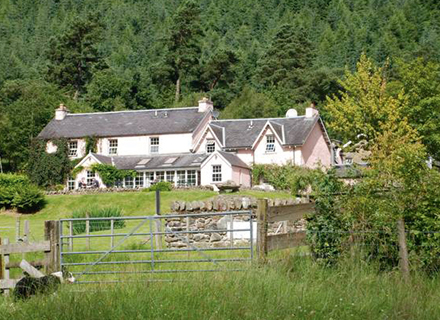
**First stop on Hulstone's trip to Scotland was the beautifully appointed Monachyle Mhor (above) in the heart of the Trossachs National Park, Balquhidder, Perthshire, where owner Tom Lewis and his family run the hotel on the banks of Loch Voil, MHORFish (a fishmongers, restaurant and fish and chip shop) and MHORBread (a bakery, tearoom and shop) in nearby Callander.
The Lewis family come from a long line of farmers - one of their ancestors took the Hereford cow to the Americas - with Tom's parents, Rob and Jean Lewis, selling their farm outside Abergavenny and moving up to Scotland in 1983.
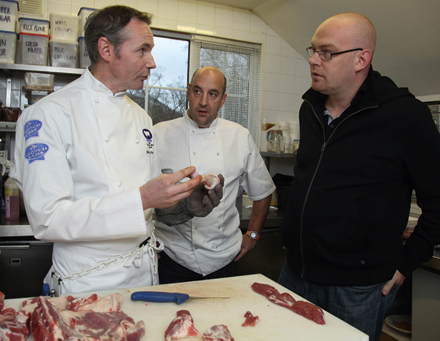
Jonathan Honeyman (above left), of the Aberfoyle Butcher, is a respected butcher who supplies many of Scotland's leading kitchens. In a one-on-one masterclass with Hulstone, Honeyman was able to show Hulstone exactly how to butcher the meat and remove the nerves to enable the chef to get the maximum out of the product and ensure that he can deliver as uniform pieces as possible.

The Mortons supply Scotbeef, which is the official supplier of Scotch Lamb to Bocuse d'Or. While the lamb supplied to the Bocuse d'Or is not likely to come from the same farmer, it will come from the same region so that consistency can be guaranteed. As Caterer went to press, Lochend was confirmed as a supplier for the 2011 Bocuse d'Or.
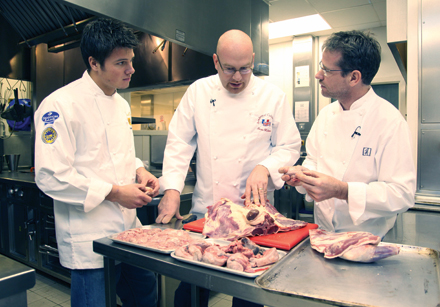
"It's always interesting spending time with Andrew," says Hulstone. "It's very useful to talk to high-profile chefs and explain what I've had to do. He has the benefit of having competed in prestigious competitions over the years, but even then he still said ‘oh my god, is that what you've got to do!'"
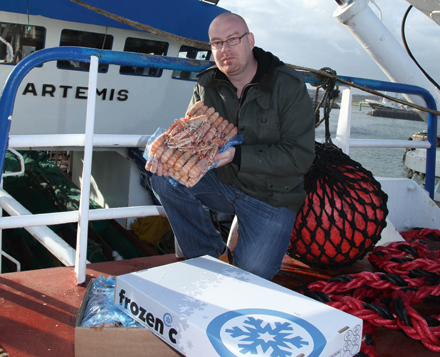
Â

"Having seen Brixham, the size of Peterhead is just amazing. The experience gave me things that I didn't think would work for me, how to get the best out of the fish. As a result, I'm hoping to use some oyster essence and dry ice to create a smell of the sea air - I'm even going to pour sea water on it."
Â
BOCUSE D'OR 2011 SPONSOR AND SUPPLIER SCOTCH LAMB
How does it feel to be involved in the competition? "We are delighted that Scotch lamb is set to be centre stage at Bocuse d'Or 2011, following on from 2009 when Scotch beef was the main ingredient," says Laurent Vernet, head of marketing for Quality Meat Scotland.
"It gives us a fabulous opportunity to reinforce the reputation of Scotland and Scottish farmers as prime quality meat producers. Scotch beef is recognised throughout the world as a top quality product and Bocuse d'Or 2011 gives us a platform to showcase Scotch lamb to a worldwide audience. Scotch lamb is based on traditional breeds, centuries of farming expertise and a natural, unpolluted environment."
Beyond supplying product for the competition itself, what are you hoping to get out of your involvement in the Bocuse d'Or? "Our target is the food service sector in the UK, France, Benelux and Italy and potential new markets further afield, such as the Middle East and top quality outlets in the Far East.
The PGI (Protected Geographical Indication) status of Scotch lamb and beef is very important and emphasises the traditional systems and unique character that Scottish origin brings. Our industry is small, compact and communication is easy. We hope to build on the strong reputation of Scotch beef within all of those markets and raise the profile of Scotch lamb to this very knowledgeable audience of experts (chefs and journalists) from around the globe."
How do you believe Scotch lamb differs in flavour to other lamb such as English, Welsh or New Zealand? "Lamb takes on the flavour of the pastures on which it spends the last few weeks of its life. In Scotland, we have a variety of grazing ranging from grass/clover lowland mixes to Highland heathers and rough salty coastal grazing - these all affect the flavour. The age of the lamb will also affect the intensity of these flavours. Different breeds are suited to different physical environments and the Scottish landscape is more diverse than that of many of our competitors so there are distinct differences in flavour, texture and juiciness.
Different lambing times ensure that Scotch lamb is at its best in autumn, later than England and Wales and earlier than New Zealand. Lamb lovers can, therefore, enjoy top quality lamb throughout the year - not just in spring which is a major misconception."
You have met with the Dutch, French and UK competitors now. Did you welcome the opportunity to have a one-to-one dialogue with them? "It was interesting finding out what they intended to do with the lamb and if they were, in fact, going to use all the products. They all visited different parts of Scotland and saw different types of farms. In each case, they were hugely impressed with the natural environment and the dedication of the farmers. During two of the visits, the weather was cold, wet and pretty wild - so Scotland lived up to its reputation for bad weather but very high animal welfare.
They all had the opportunity to appreciate Scottish hospitality and each spent time with a top chef and commended the quality of the meat. The true taste of the lamb shone through as we expect it to do for all the competitors in Lyon."
Â
BOCUSE D'OR 2011 SPONSOR AND SUPPLIER SEAFOOD SCOTLAND
How does it feel to be involved in the competition? "This is the first time that Scotland has sponsored the seafood category of the competition and it's a real achievement to be involved," says Sarah Holmyard, marketing manager for Seafood Scotland. "We are delighted that the judges chose Scottish seafood for the final of the competition. The seafood we put forward had to be agreed by a panel of judges and we had to provide back-up information about the measures that Scotland takes to ensure sustainable seafood supplies."
How much produce do you have to supply in total and how straightforward is it to source that produce from a consistency point of view? "We have to supply two monkfish, four crabs and 20 langoustine to each of the 24 competitors in the final. As it is a wild-caught product and the competition is in January, the best plan was to freeze the monkfish and langoustine in advance so that we can make sure that the exact size and quality specifications are met. The crabs will be provided live and will be landed the week before the competition."
Beyond supplying product for the competition, what are you hoping to achieve in terms of raising the profile of Scottish seafood? "We will have a stand in the VIP area where will be able to invite potential buyers for hospitality. We will also have a joint stand in SIRHA where we will be able to promote Scottish seafood and educate people about the diversity of seafood Scotland has to offer. "
How do you believe Scottish seafood differs in flavour to other seafood? "Scottish seafood, caught in the cold waters of the North-east Atlantic, is carefully handled and processed on board to maintain its texture, flavour and quality. This ‘care in the catch' is maintained throughout the supply chain. We believe that the environment in which it is caught and the attention to handling makes a real difference to the taste of our products."
Â
WHAT'S IN THE BOCUSE D'OR BOX?
THE CONTENTS OF THE SEAFOOD BOX
Candidates will receive an identical box containing the specified Scottish seafood. All products will be similar in size and weight and be to the same specification.
â- All products will come from Scottish boats which are part of the accredited Responsible Fishing Scheme.
â- All products are wild seafood.
â- The exact species are monkfish (Lophius piscatorius), langoustine (Nephrophs norvegicus) and brown crab (Cancer pagurus).
â- All products will be presented whole (monkfish will be gutted with head on).
â- The langoustine will be individually quick frozen to retain freshness.
â- The crab will be live.
â- The monkfish will be delivered fresh (under exceptional circumstances - ie very bad weather - the monkfish may have been pre-frozen and delivered thawed). In this case, all competitors will receive the same product.
The box will contain
â- 1 or 2 (candidates' choice) whole, gutted monkfish weighing about 5kg.
â- 4 whole live brown crabs between 800g and 1kg each.
â- 20 langoustine size 6/8 pieces per kilo.
THE CONTENTS OF THE MEAT BOX Candidates will receive an identical box containing specified lamb cuts. All products will be similar in size and will have the same specification.
â- All products have been sourced from animals that have been born, reared and slaughtered in Scotland.
â- The lamb cuts will be from commercial cross-bred lambs, carcase classification R3L and weight 17-19kg.
â- All lamb products will be fresh except the sweetbreads which will have been frozen.
â- All products will be untrimmed.
The box will contain â- 2 unsplit short loins/saddles of Scotch lamb, chump on, rack off and kidneys (two on each) attached, untrimmed, weight approximately 3kg each.
â- 1 oyster/round shoulder of Scotch lamb, untrimmed, weight approximately 1.5-2kg.
â- 1kg Scotch lamb sweetbreads, not cleaned or skinned, previously frozen due to seasonality. Chefs will receive them thawed.
â- 1kg Scotch lamb tongues, Swiss cut, not skinned. The average weight of each tongue will be 80-85g.
Â
SUSTAINABLE SOURCING OF SCOTTISH SEAFOOD
Key facts regarding Scotland's seafood industry â- Landings into Scotland in 2009 were 378,000 tonnes, worth £443m.
â- 80% of the value of Scottish landings is accounted for by just eight species: langoustine, mackerel, haddock, monkfish, scallops, cod, lobster and brown crab.
â- All seafood landed into Scotland is fished legally and is within quota set by the EU.
â- All seafood landed into Scotland is traceable and accountable.
â- Overfishing is a thing of the past within one of the most highly regulated and strictly managed fisheries in the world.
â- Industry and science partnerships have been set up to assist with research into sustainable fisheries management.
â- Modified selective gear avoids untargeted and undersized species and has greatly reduced the occurrence of fish discarding.
Â
**WATCH LIVE AT HOSPITALITY 2011
**â- The finals of the Bocuse d'Or 2011 will be streamed live into Hospitality 2011 at Birmingham's NEC on Wednesday, 26Â January. For more details on Hospitality, go to www.hospitalityshow.co.uk





